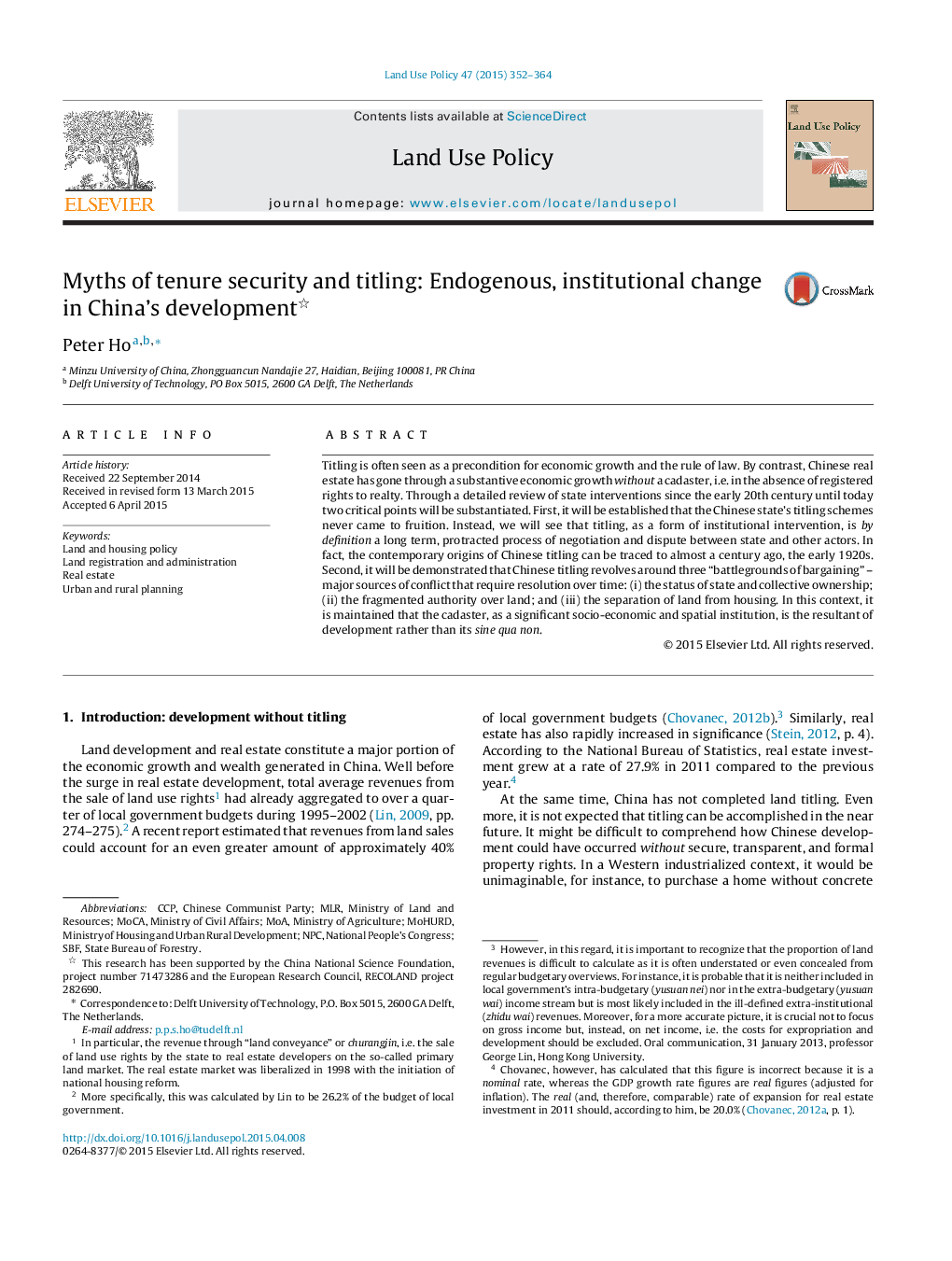| Article ID | Journal | Published Year | Pages | File Type |
|---|---|---|---|---|
| 6548153 | Land Use Policy | 2015 | 13 Pages |
Abstract
Titling is often seen as a precondition for economic growth and the rule of law. By contrast, Chinese real estate has gone through a substantive economic growth without a cadaster, i.e. in the absence of registered rights to realty. Through a detailed review of state interventions since the early 20th century until today two critical points will be substantiated. First, it will be established that the Chinese state's titling schemes never came to fruition. Instead, we will see that titling, as a form of institutional intervention, is by definition a long term, protracted process of negotiation and dispute between state and other actors. In fact, the contemporary origins of Chinese titling can be traced to almost a century ago, the early 1920s. Second, it will be demonstrated that Chinese titling revolves around three “battlegrounds of bargaining” - major sources of conflict that require resolution over time: (i) the status of state and collective ownership; (ii) the fragmented authority over land; and (iii) the separation of land from housing. In this context, it is maintained that the cadaster, as a significant socio-economic and spatial institution, is the resultant of development rather than its sine qua non.
Related Topics
Life Sciences
Agricultural and Biological Sciences
Forestry
Authors
Peter Ho,
